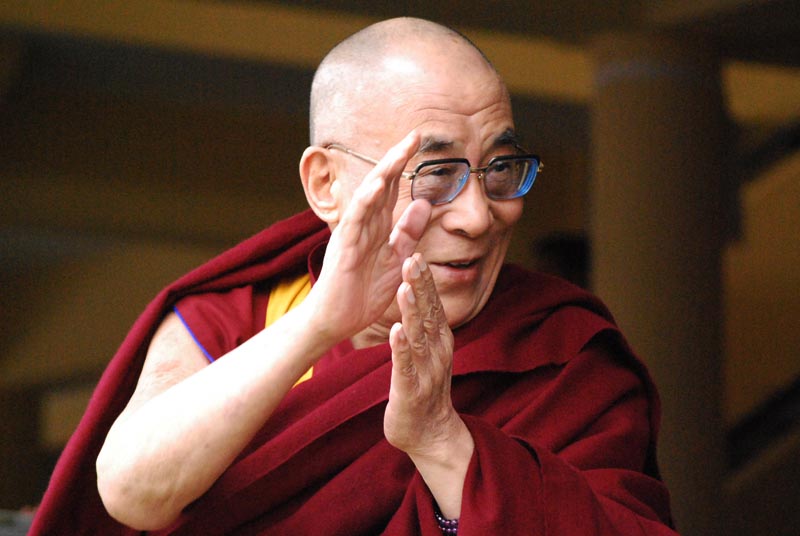 Dharamshala: Tibet's political and spiritual leader His Holiness the Dalai Lama on Saturday told NDTV that Indian and Chinese leaders can only address the Tibet issue if they build mutual trust, and that China should become more transparent in order to build that trust.
Dharamshala: Tibet's political and spiritual leader His Holiness the Dalai Lama on Saturday told NDTV that Indian and Chinese leaders can only address the Tibet issue if they build mutual trust, and that China should become more transparent in order to build that trust.
"India is democratic country," he said in a televised interview. "Other (Chinese) side, every level remains still secret and unpredictable. That automatically creates some sort of suspicion."
When asked how India should address disagreements between China and Tibet, His Holiness said, "This is quite difficult, but firstly Sino-Indian relations must improve. It should not be just a diplomatic smile but real sort of good friendship on the basis of mutual trust
"We can build the genuine 'Hindi-Chini bhai-bhai' (Indian-Chinese brotherhood) relations. I think sooner or later it must develop. Because Tibet is next to the border, India, with that trust with Chinese leaders, can help to reduce the problem."
His Holiness continued that China's construction of road and railway links, and its building up of military bases inside Tibet naturally creates suspicion amongst some of his Indian friends, particularly in the Indian army
He added that talking "is the only way forward" to solve the issue but described the current Chinese policy on Tibet as unrealistic.
"We are not against the Chinese people (but) the Chinese policy. We are simply campaigning against some of the Chinese unrealistic policies (which are) due to ignorance or short-sightedness."
His Holiness concluded that, "A number of Chinese writers and intellectuals are now showing their concern, out of better awareness about Tibet. So they are critical about their own government policy."


![Tibet has a rich history as a sovereign nation until the 1950s when it was invaded by China. [Photo: File]](/images/stories/Pics-2024/March/Tibet-Nation-1940s.jpg#joomlaImage://local-images/stories/Pics-2024/March/Tibet-Nation-1940s.jpg?width=1489&height=878)















